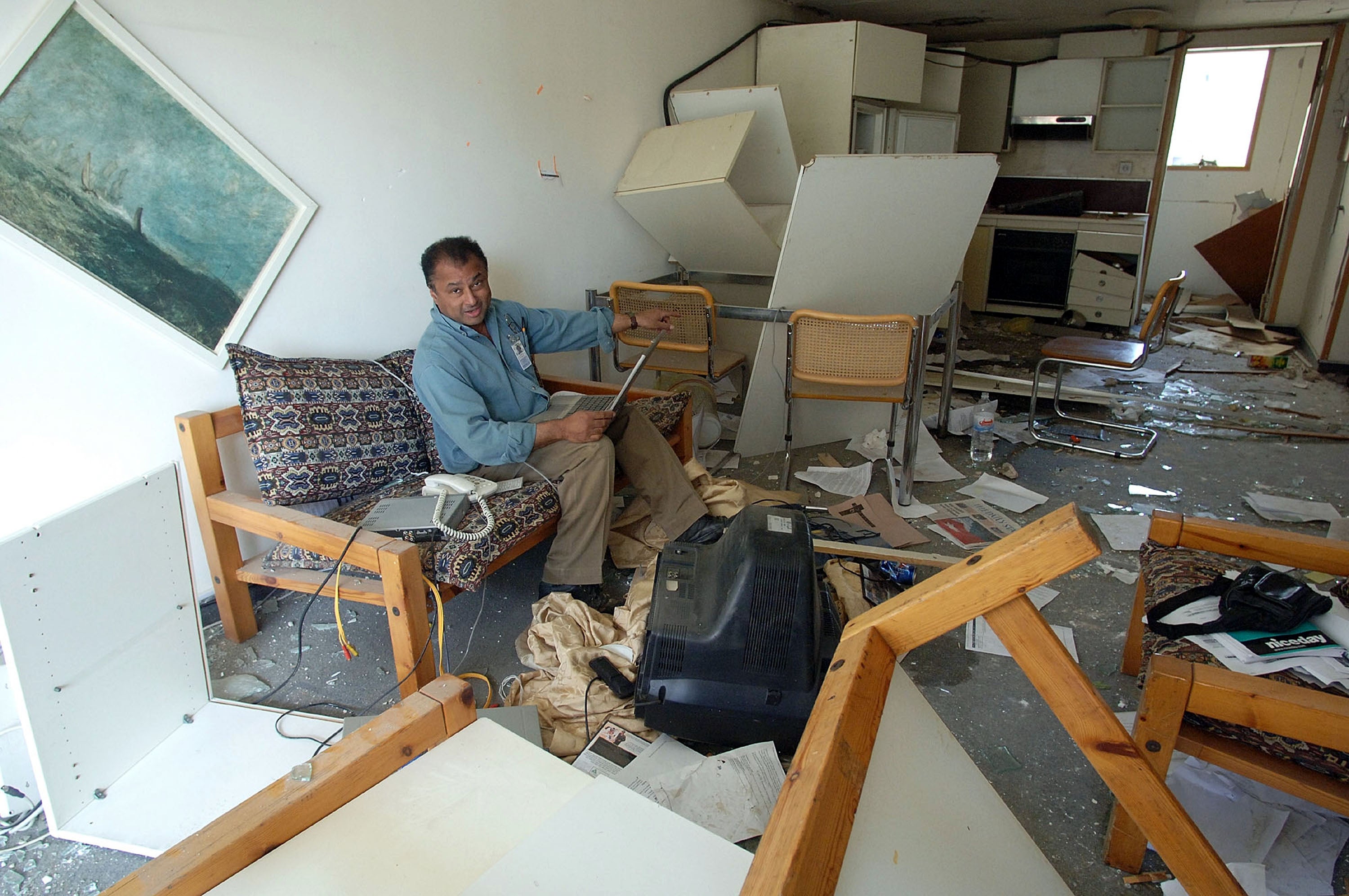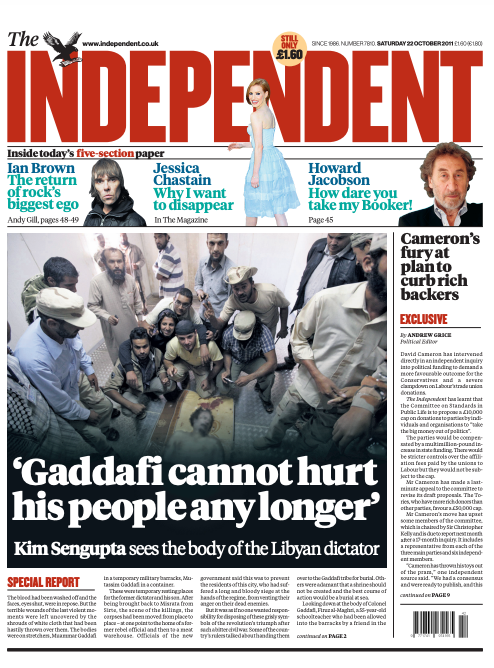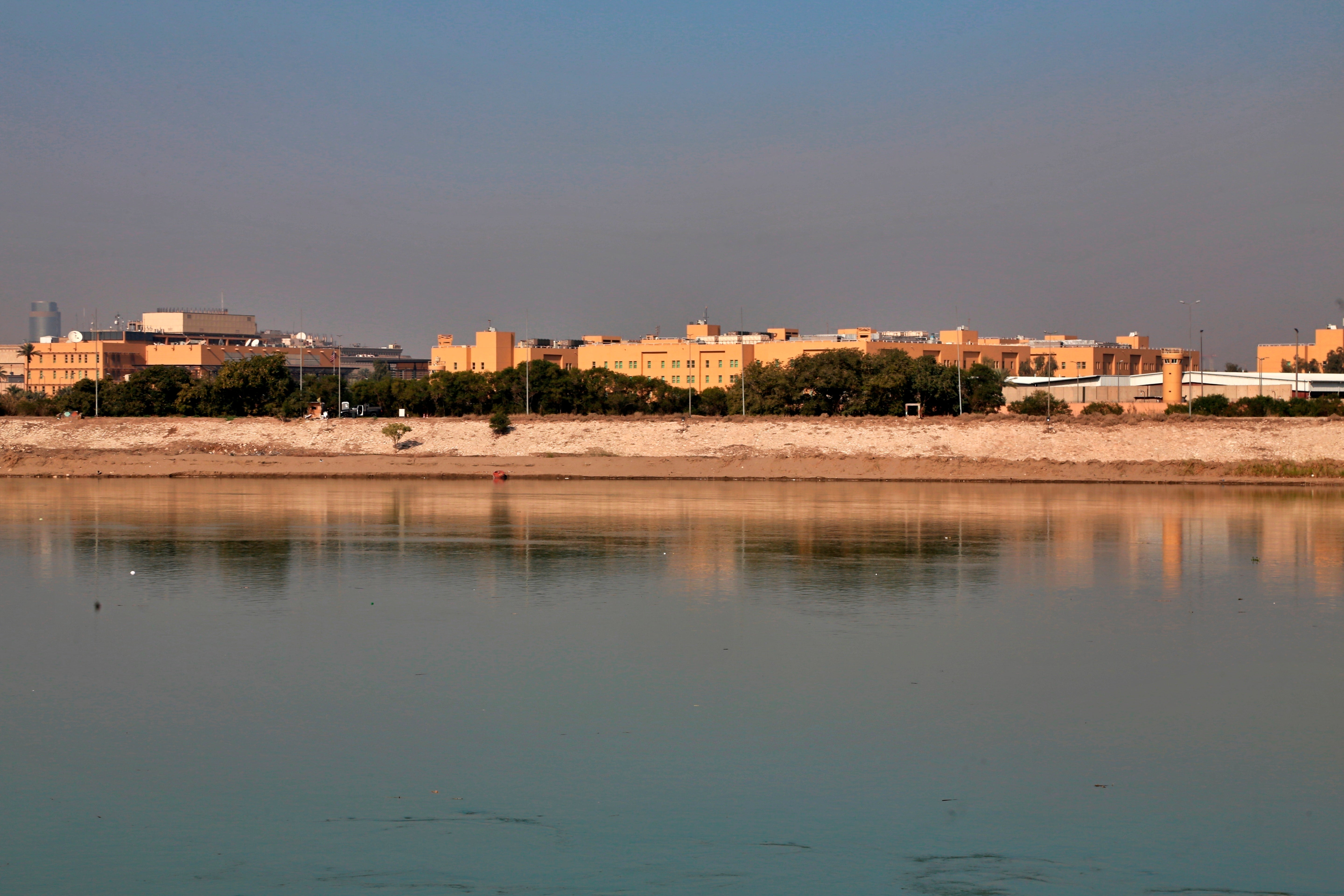Kim Sengupta was brave and determined, but also smart and resilient
Patrick Cockburn – a longtime colleague of Kim – remembers a courageous correspondent always determined to get as much fun as possible out of the direst situation


Your support helps us to tell the story
From reproductive rights to climate change to Big Tech, The Independent is on the ground when the story is developing. Whether it's investigating the financials of Elon Musk's pro-Trump PAC or producing our latest documentary, 'The A Word', which shines a light on the American women fighting for reproductive rights, we know how important it is to parse out the facts from the messaging.
At such a critical moment in US history, we need reporters on the ground. Your donation allows us to keep sending journalists to speak to both sides of the story.
The Independent is trusted by Americans across the entire political spectrum. And unlike many other quality news outlets, we choose not to lock Americans out of our reporting and analysis with paywalls. We believe quality journalism should be available to everyone, paid for by those who can afford it.
Your support makes all the difference.I can scarcely believe that Kim Sengupta is dead because I have such vivid memories of him surviving great dangers against the odds. He was brave and determined, but also smart and resilient, which was why he had lived to report so many wars.
I recall talking to him – still shaken and with cuts on his face – in the Hamra hotel in Baghdad in 2005, soon after a suicide bomber had blown up a truck packed with explosives close to the side of the hotel where Kim had his room. He told me that he had been lying on his bed reading so that the bigger shards of glass from the shattered windows had missed him.
“Security people always tell us that the safest place during a bombing is the bathroom, because it usually has no windows, but luckily I didn’t have time to follow their advice,” he told me with a half-laugh, showing me a photograph of his bathroom in which the ceiling had fallen in.
He explained that there had been two truck bombs, the first to blast through the hotel’s security wall and a second, packed with a thousand pounds of explosives, which was meant to pass through the gap and strike the main body of the hotel.
Kim said that he had been lucky because the second truck could not get across the crater made by the first, but I felt then and on many other occasions that he made his own luck. In one sense, it is easy to be a war correspondent because the story is always gripping and dramatic, but it is very difficult to do it superbly well as Kim was to do for years.
He was tough but he was intelligent, taking risks but carefully calculated ones. I did not often report alongside him because we usually took over from each other. However, I knew a lot about his reporting because we would brief each other during a handover about problems to be faced or avoided.
The worst of these dangers were usually in Baghdad. Once, Kim told me not to come because of something that had just happened to him. He had been going to a hospital on the other side of the Tigris River held by a ferocious militia called the Mehdi Army. Kim told me that just as he was getting into a car to go there, a news photographer said to him: “You can’t go there. Don’t you know that the Mehdi Army has orders to shoot anybody from The Independent?” It turned out that the paper had run some interviews to which the militia commanders objected. Kim and I spent a lot of time negotiating our way back into Iraq.

Much of what Kim and I talked about over the years had to do with the mechanics of war reporting, about which drivers and guides really knew their business. I always trusted his judgement on people and places. Many of these conversations were on the phone but on occasion, we coincided. In 2011, we were both in Libya, first in Benghazi and later in the capital Tripoli.
Just after the latter had fallen to the rebels and Muammar Gaddafi had been killed, I made my way with great difficulty from Tunis to Tripoli and was feeling rather pleased with myself for getting through. But just as I got out of a car outside the hotel where I was planning to stay, I saw, somewhat to my chagrin, Kim’s familiar figure strolling by, having somehow got there before me.
This might give the impression of a man with a grimmer outlook on life than was the case. Kim was always determined to get as much fun as possible out of the direst situation. We were not often in London at the same time but, when we were, we would meet to gossip about our friends and colleagues, and talk of our recent experiences.

We met once, just after he had returned from Khartoum where he had been covering the fighting in western Sudan. I could see that was bubbling over to tell me a funny story: “Do you remember that enormous Sudanese who was major-domo with a turban at the al-Rashid Hotel in Baghdad before the American invasion?” he asked me. “I just saw him again. I had gone to see a militia I had never met before. When I got to its headquarters, a big guy in a general’s uniform jumped up and shouted: “Hello, Kim, Don’t you remember me?”
It was the major-domo, who had returned to Sudan after the fall of Baghdad in 2003, untruthfully telling friends in Khartoum that he had been in Iraq to fight the Western invaders. “We have a job for somebody with a military background,” said a politically powerful friend and the major-domo was promptly appointed head of a government-supported militia.
I remember Kim’s enjoyment as he told me this story, perhaps because it confirmed his underlying cynicism about the competence of military commanders the world over. Kim knew a great many generals but, by the time he died, he knew more about the chaos and miseries of warfare than almost any of them.





Join our commenting forum
Join thought-provoking conversations, follow other Independent readers and see their replies
Comments